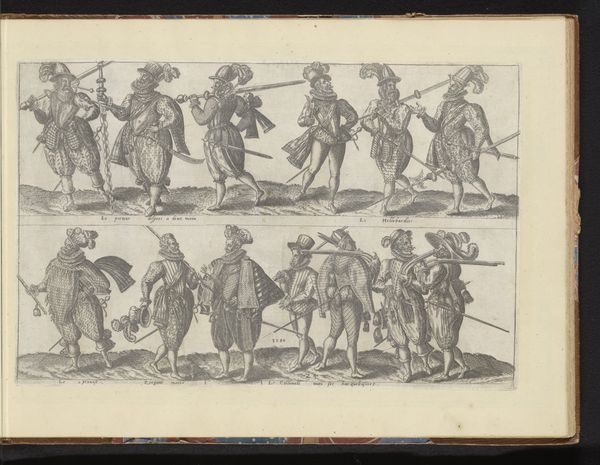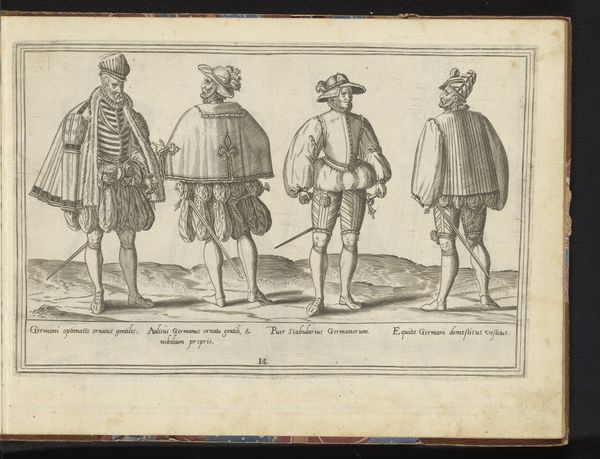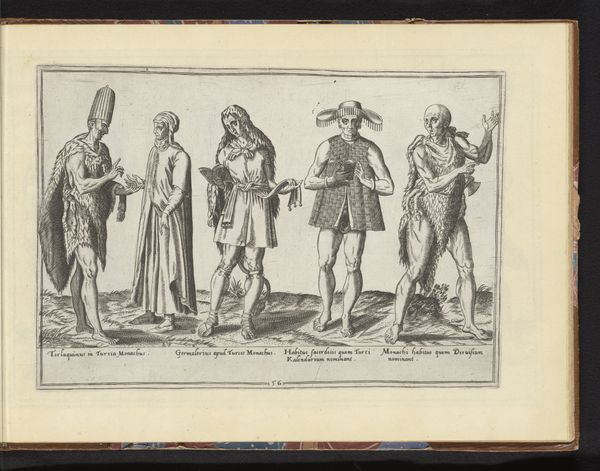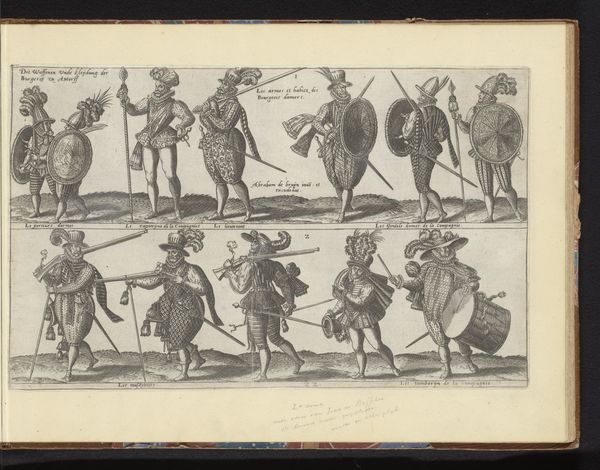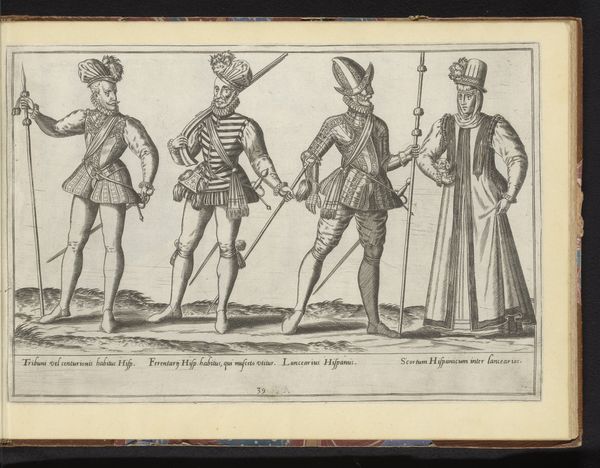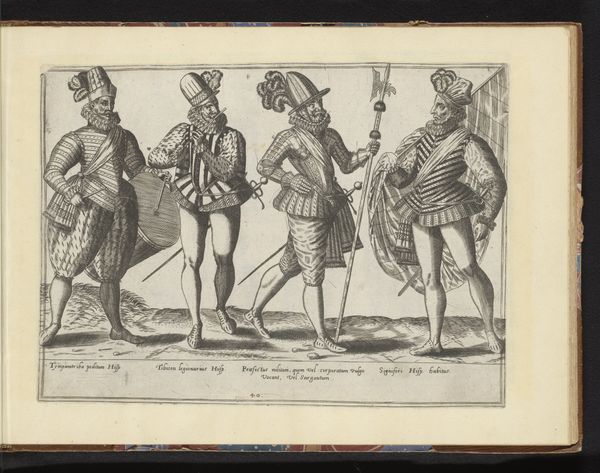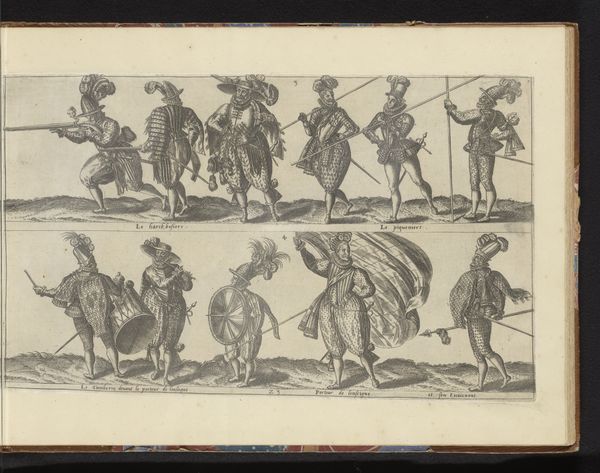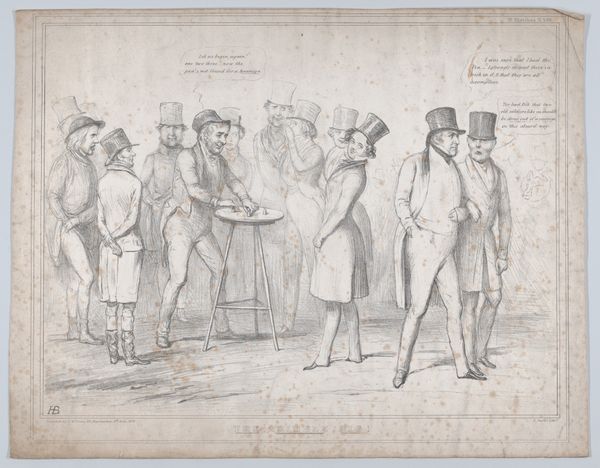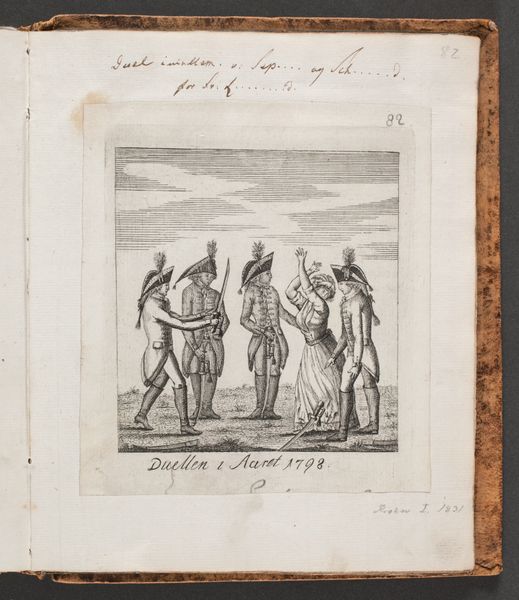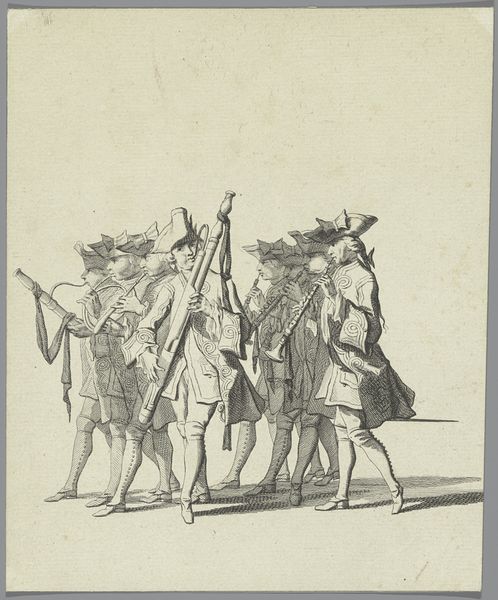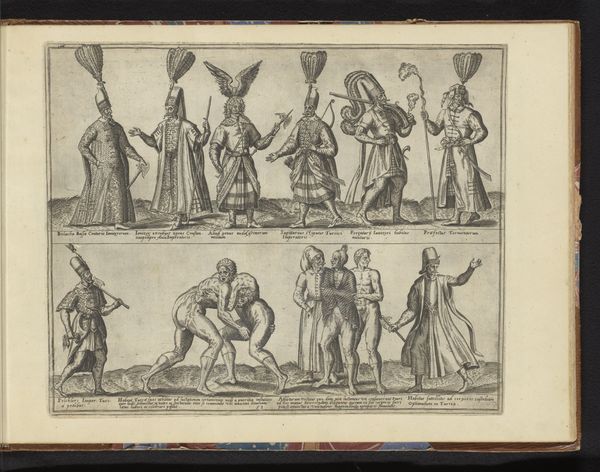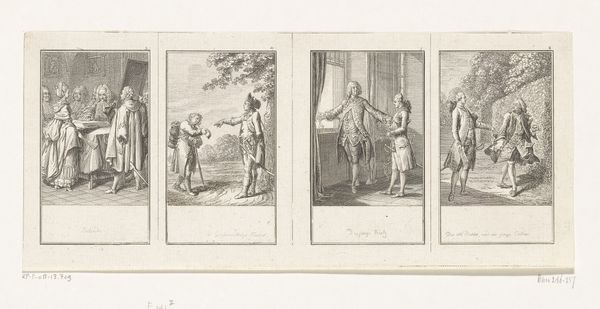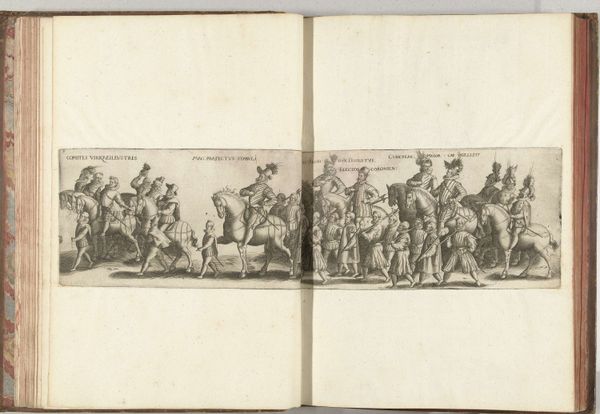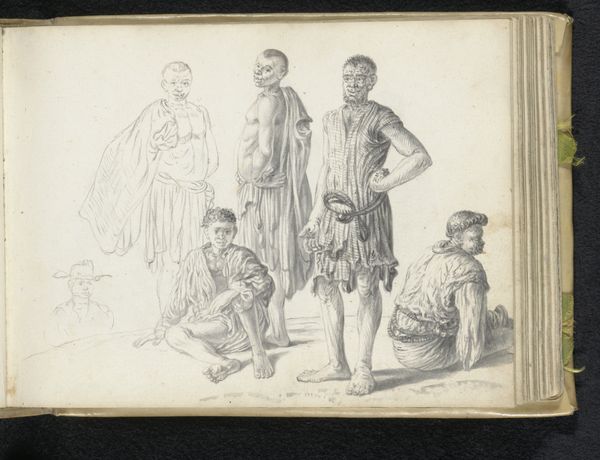
Vijf landlieden, gekleed volgens de mode in Vlaanderen, ca. 1580 before 1581
0:00
0:00
abrahamdebruyn
Rijksmuseum
print, engraving
# print
#
figuration
#
coloured pencil
#
genre-painting
#
northern-renaissance
#
engraving
Dimensions: height 265 mm, width 360 mm
Copyright: Rijks Museum: Open Domain
Abraham de Bruyn made this engraving of five Flemish countrymen around 1580, using metal plates and acid to etch the lines that define the figures. Notice the careful attention to detail in their clothing. Engravings like this were part of a larger cultural phenomenon: the rise of printed images, which were relatively inexpensive to produce and distribute. This made fashion trends accessible to a much wider audience than ever before. The clothing itself speaks to the emergence of early capitalism, with laborers now able to participate, at least to some degree, in consumer culture. Consider the amount of work involved in producing even these relatively simple garments: the growing of flax or wool, the spinning of thread, the weaving of cloth, the cutting and sewing. Each step was labor-intensive, and the resulting clothes were valuable commodities, as much a signifier of social status as they were practical coverings. By focusing on the material culture represented in this engraving, we gain a richer understanding of the social and economic forces at play in 16th-century Flanders.
Comments
No comments
Be the first to comment and join the conversation on the ultimate creative platform.
